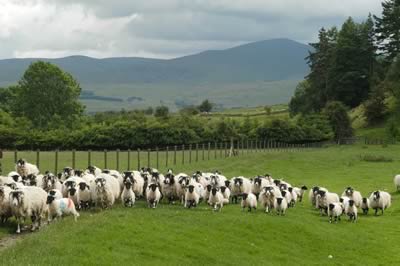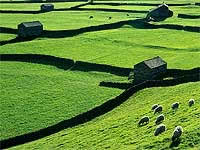 |
|||||||||
|
|||||||||||||||||||
|
|
|
||||||||||||||||||
 |
NUSS has collaborated with other initiatives supporting the sheep industry, eliminating duplication and providing a cohesive approach to producers. The EBLEX Better Returns Programme, Forward Farming, The Development Programme for the Rough Fell Trust, the Red Meat Industry Forum and the research projects Developing Effective Feedback Strategies in the Lamb Supply Chain and the Longwool Project have all been involved.
NUSS project manager and MLC Beef and Sheep Scientist Dr Mary Browne said: "Collaboration has been particularly important and, in many respects, a unique feature of NUSS. There are many initiatives out there, all bombarding the industry with information, and collective delivery often enhances the value of them all."
NUSS Chairman, farmer Carl Stephenson, said: "Many of the activities and information available through NUSS were aimed at identifying flock strengths and weaknesses and how these could be changed or improved upon as necessary.
“As we move in to an era without headage subsidy, producers will need to concentrate on lowering costs of production and increasing sale returns.
"In many instances it will not be possible to achieve this through cost reduction alone, but through enhanced ewe and tup performance. NUSS has provided new knowledge and skills for many producers, setting them on the road to achieving this".
NUSS is a collaborative project between the Meat and Livestock Commission, Defra (via the Agricultural Development Scheme), the North of England Mule Sheep Association and the Northern Uplands Moorland Regeneration Project.
It has also been supported by the Bluefaced Leicester Association and the Swaledale Sheep Breeders Association. Its objective has been to improve the financial returns of hill sheep producers, by increasing the number of lambs meeting the quality requirements of the market.
* A good lambing rate and a reduction in ewe lambs retained as replacements over the year seem certain to increase the overall supply of English lambs in the coming season, according to the latest annual forecast from the English Beef and Lamb Executive (EBLEX).
But, thankfully in the first year of the reformed CAP, any increase in supply is likely to be relatively limited and have little, if any, impact on the continuing stability of the market.
MLC Senior Economic Analyst, Jane Connor said: “Positive reports from pregnancy scanners confirm observations that large numbers of ewes were in particularly good condition at tupping last autumn. So, barring calamitous weather conditions at or around the peak of spring lambing, a heavy lamb crop is in prospect.
“All the evidence indicates that breeding sheep numbers continue to remain stable. With the anticipated lamb crop and a slight reduction in ewe lamb replacements, resulting from uncertainty over the new Single Farm Payment regime, an increase of around 2 per cent is expected in year-on-year lamb marketings over the UK as a whole.”

| property | organisations | site map
"The objective of this Strategy
is to improve the financial
viability of hill sheep producers by
increasing the number of lambs
meeting the quality requirements
of the market".
 £1
million strategy benefits north sheep industry
£1
million strategy benefits north sheep industry